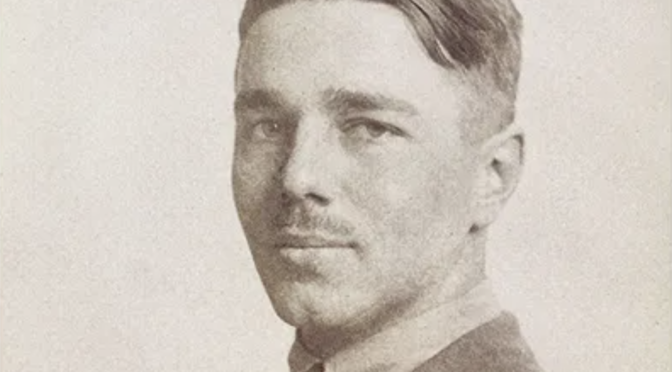When World War I broke out in 1914, many young men with stars in their eyes signed up to be soldiers, expecting war to be glorious. Based on all the pro-war propaganda they’d received throughout their short lives, most thought primarily of the honor of serving their country, and of the glory that would accrue to their names if they should fall in battle.
.
But the war was much more brutal, enormous, and seemingly endless than expected. New war technologies (planes and tanks among them) and endless miles of muddy trenches were nightmarish, and left millions of men exposed to the elements and to attack from every direction. The endless horror was too much for many men who retreated into their minds and lost contact with the world. Shell-shock was rampant.
.
Rather than hide their broken souls from the world, some writers during and after the war poured their horror and hopelessness out on the page.
.
“
Dulce Et Decorum Est” is a poem written by
Wilfred Owen during World War I, and published posthumously in 1920. It describes the horrors of a mustard gas attack. The Latin title is from a verse written by the Roman poet
Horace: “Dulce et decorum est pro patria mori.” In English, this means, “It is sweet and proper to die for one’s country”. The poem, which delivers a wry and ironic quotation of Horace’s words, is Owen’s best-known work.
.
Wilfred Owen was killed in battle one week before Armistice Day. His parents learned of his death on the day the war ended. Their son was only 25 when he died, but he and his friend Siegfried Sassoon remain the best-remembered and most often-quoted English poets of World War I.
.
Dulce Et Decorum Est
Bent double, like old beggars under sacks,
Knock-kneed, coughing like hags, we cursed through sludge,
Till on the haunting flares we turned our backs
And towards our distant rest began to trudge.
Men marched asleep. Many had lost their boots
But limped on, blood-shod. All went lame; all blind;
Drunk with fatigue; deaf even to the hoots
Of disappointed shells that dropped behind.
GAS! Gas! Quick, boys!– An ecstasy of fumbling,
Fitting the clumsy helmets just in time;
But someone still was yelling out and stumbling
And floundering like a man in fire or lime.–
Dim, through the misty panes and thick green light
As under a green sea, I saw him drowning.
In all my dreams, before my helpless sight,
He plunges at me, guttering, choking, drowning.
If in some smothering dreams you too could pace
Behind the wagon that we flung him in,
And watch the white eyes writhing in his face,
His hanging face, like a devil’s sick of sin;
If you could hear, at every jolt, the blood
Come gargling from the froth-corrupted lungs,
Obscene as cancer, bitter as the cud
Of vile, incurable sores on innocent tongues,–
My friend, you would not tell with such high zest
To children ardent for some desperate glory,
The old Lie: Dulce et decorum est
Pro patria mori.

